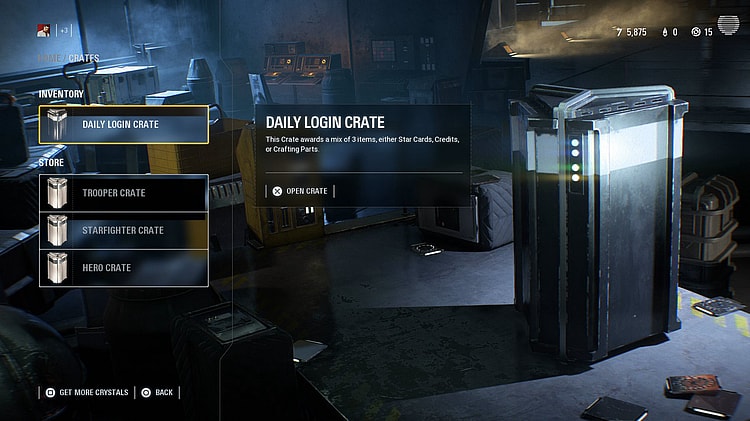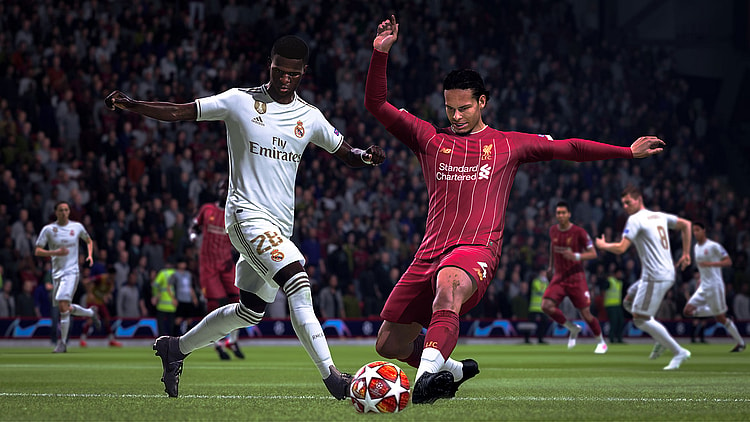Netherlands Rules Loot Boxes Are Form of Gambling, EA Now Facing €10 Million Fine

EA is now facing a €10 Million fine after their lengthy battle over the legality of loot boxes in the Netherlands has resulted in the country’s government declaring that the game mechanic is, in fact, a form of gambling.

The concept of loot boxes, which can be acquired through in-game actions or real-world currency and gives players a chance of unlocking exclusive items such as costumes, weapons, and even full characters, has long been a controversial addition to modern games due to the randomly determined nature of the items one can receive.
Given that this system is prevalent in many games played by young children, including FIFA, Fortnite, and Overwatch, various countries took notice of loot boxes and launched investigations into the mechanic to determine whether or not it truly constituted ‘gambling.’
Though the United Kingdom determined that loot boxes do not rise to the level of gambling, other governments disagreed, as a United States Senator proposed an ‘anti-lootbox’ bill and both Belgium and the Netherlands classified the practice as gambling and banned their sale within their borders.

The gambling classification in the Netherlands was challenged in court by EA, particularly in regard to its FIFA titles, who argued in a Hague court that the loot boxes did not change the fundamental nature of the ‘game of skill’ they were included in.
During this time, EA continued to offer loot boxes for purchase within the country, despite a prior warning that “enforcement action” would occur if the system did not change by June 20th, 2018

Related: US Senator Josh Hawley Introduces Anti-Loot Box, Anti-Microtransaction Bill to US Senate
The court disagreed, and ruled that “Plaintiffs offer online a game of chance (loot box) that is included in a game of skill,” which allowed for the Netherlands Gambling Authority (Kansspelautoriteit, or Ksa), to impose fines against EA for their continued sale of loot boxes.
In a statement announcing the penalties against EA published on October 29th, the KSA stated that “Electronic Arts Inc. and Electronic Arts Swiss Sàrl are violating the Gambling Act through its Packs in the FIFA video game.”
“The law stipulates that games of chance may not be offered without a licence,” the KSA explained. “This is not without cause; games of chance are high-risk products that can only be offered under strict conditions. Electronic Arts Inc. and Electronic Arts Swiss Sàrl are not licensed to offer games of chance. The orders subject to a penalty were imposed in order to compel the companies to put an end to the violation.”

The KSA also stated that they were “alarmed that more and more games are appearing with elements of gambling, not least because gamers tend to be young and particularly susceptible to developing a gambling addiction,” and noted that their belief that it is “crucial to shield vulnerable groups, such as minors, from exposure to gambling.”
“Adults likewise stand to benefit in this regard, as they should be aware of what kind of game they are playing,” added the KSA. “This is, in part, why the Ksa feels that a strict distinction must be made between games and games of chance.”

As a result of this decision, both EA and its payment processing arm, EA Swiss Sàrl, face weekly fines of €250,000, exceeding no more than €5 Million total each, for a potential grand sum of of €10 Million (approx. $11,671,800.00 USD) in total penalties.
However, it is possible the outcome of the Netherlands’ ruling could change, as EA currently has six weeks to appeal the decision.
